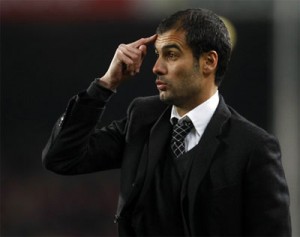By Rehan Mirza, Centre of Excellence at Notts County FC & UEFA B License Coach.
 With the every growing popularity of football in Pakistan, I thought it may help coaches to not just focus on building the team to play physically on the pitch, but to also prepare players mentally. As a coach, getting to know the team for the first time is challenging. For players, it is equally as hard as they know they have to perform as an individual within a team environment. When players meet for the first time, they will bring with them their own methods and sense of security. Taking this into account, what else needs to be thought of other than a good training session?
With the every growing popularity of football in Pakistan, I thought it may help coaches to not just focus on building the team to play physically on the pitch, but to also prepare players mentally. As a coach, getting to know the team for the first time is challenging. For players, it is equally as hard as they know they have to perform as an individual within a team environment. When players meet for the first time, they will bring with them their own methods and sense of security. Taking this into account, what else needs to be thought of other than a good training session?
I have coached from younger age groups to adult ages and recognise the need to have a good mentality amongst the team. Players must have a good mental and physical state to reach their optimum level of play. How is this achieved during a season or a simple training camp?
As a member of the English FA’s Coaches Association, I read an article how Alan Smith (Football league manager) fosters various aspects of how to motivate players. Some are listed as below.
- Players must remain motivated which is done with well planned coaching sessions, suited to their level, past performance deficiency and next match targets. I normally plan a session to achieve a desired objective with relevant outcomes so that players can then progress this to a game environment.
- Constantly give positive feedback and encouragement whilst emphasizing positive features at any chance you get during the game. Any praise or encouragement however should always be authentic and legitimate to the situation presented.
- Constructive criticism should be used but it must always be monitored. I recall during a game, I made comment to our U14 right back to see if he can confidentially travel forward with the ball into space, rather than a long pass hoping for a player to run onto. He took it with offence and with a frown said “I AM confident!” I waited until half time to explain it in a positive way and that although he made the right decision, it may have simply been the wrong execution.
- Instruct the players what you want them to do but do NOT tell them what you do not want them to do. Instead of criticising the players individually, comment on correcting their actions and performance, i.e. address comments to the actions of the player and not to the player personally.
- The sandwich technique is common in many environments. It involves giving positive feedback followed by corrective feedback finishing off with an additional piece of positive feedback. This method is very useful.
- Establish good team cohesion, including all members of staff (coaches, physio, etc). Teams tend to bond well when being involved in social events and outdoor activities.
- Be considerate to players and staff and encourage an atmosphere of trust, along with a good sense of team spirit amongst all members.
- Engage the players in the development of team tactics, strategies, training sessions and general day to day activities. This does require the coach/manager to have a good stronghold on taking charge with this strategy.
- Create weekly personalised training sessions and attention towards individual players needs, technically, tactically, physically and mentally. Players appreciate someone making the effort to work with them on a one-to-one basis.
- Realistic outcome goals are great for motivational purposes (particularly during weekly training sessions) and should be used alongside process and performance goals which will help reduce anxiety and stress, particularly useful before games. By tasking them with objectives during the game, they can then relate it to outcomes as something to aim for.
- Carry out regular open team meetings where all players can sit and have an open discussion about team events. I tend to make players feel more comfortable by sitting with them or even sitting on the grass with younger age groups. A tactics board does wonders for me, where also the use of display boards, power point and video can help.
- Video footage of past games is very motivational and encourages confidence in the players. During away games at Nott’s County’s Centre of excellence, we always tend to put on a video of a memorable game which sends out energy to the players.
These are some of the points which I hope will provide coaches to reflect on how they implement their own coaching philosophy. Every player can be fit, but they need to be in the right mind set to perform at their optimum level.

